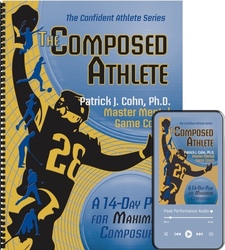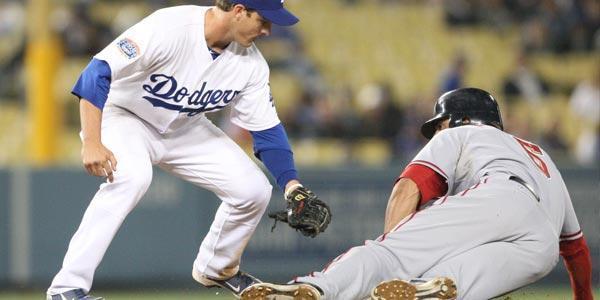Do You Check Out After Mistakes?
OK, so I’ve received a ton of questions from athletes, coaches and parents about how to help athletes who “check out” after making mistakes in competition.
Do you (or your players) have trouble keeping your head in the game after mistakes? Do mistakes compound because you’re so frustrated you can’t think clearly?
Not letting go of mistakes quickly can spiral out of control and cause other “mental game” challenges in sports. When this spiral begins, you might become frustrated, get angry, lose confidence, and or give up altogether.
One student I worked with couldn’t let go of mistakes. See, she expected to not make mistakes at all. One mishap and she’d dwell on the mistake and could not focus on her game.
When the downward spiral of frustration starts, momentum is lost. Confidence goes down the drain. Anger leads to bad choices. You know the drill.
To perform at your peak, you have to learn how to let go of mistakes quickly and remain in control or composed.
So, what the secret to letting go of mistakes? My work reveals that athletes are more likely to stay composed when they can accept mistakes as part of sports.
For some athletes, acceptance of mistakes is not easy. This is especially true for athletes who have very high expectations for their performance.
Leaving Your Mistakes Behind
When you expect to perform perfectly or have a zero-mistake performance, you actually set yourself up for failure. Why? The moment you make a mistake, you think you are under performing.
Thus, your first step to boosting composure is to come mentally prepared to competition knowing that athletes make mistakes and you have to accept this fact.
The second step is to manage the strict expectations that cause you to “check out” and sometimes give up when you make errors.
For example, one baseball pitcher I knew expected to throw a no-hitter every game (a very tough task). What do you think happened when he gave up the first hit in the game? He was devastated and overcome with frustration.
So your mental game tip for today is to accept mistakes and part of playing sports. And be mindful of the expectations that set you up for feeling like you are failing (when you don’t perform to these expectations).
Your Mental Game Coach,
Dr. Patrick Cohn
p.s. If you want the fast-track to boosting your composure, check out “The Composed Athlete” workbook program. You’ll learn all my secrets for staying composed after mistakes and how to stay calm during crunch-time:
p.p.s Did you know that I also do personal mental coaching? Doing personal mental training with athletes is how I get started in sports psychology. This is your absolute fastest option to boost your mental toughness. Contact me if you want the details.
Related Sports Psychology Articles
- How To Grind Out a Round Instead of Collapse
- 5 Mental Strategies Of A Pregame Routine
- How to Get ‘Psyched Up’ Instead of ‘Psyched Out’
*Subscribe to The Sports Psychology Podcast on iTunes
*Subscribe to The Sports Psychology Podcast on Spotify
Download a free sports psychology report to improve your mental game!
Learn more about our one-on-one mental game coaching.
The Composed Athlete

“The Composed Athlete” is presented on 80-minute Audio Programs with a 70-page step-by-step workbook that guides you through the program each day. It’s a complete system for conditioning your mind to have maximum composure in competition.
“The Composed Athlete” was developed for any level coach, parent, or junior to professional athlete who wants to improve performance and gain a competitive edge. It does not matter if you are a fledgling junior athlete; or a seasoned professional, plagued with distractions; or you just wanting to learn how to improve your composure…

